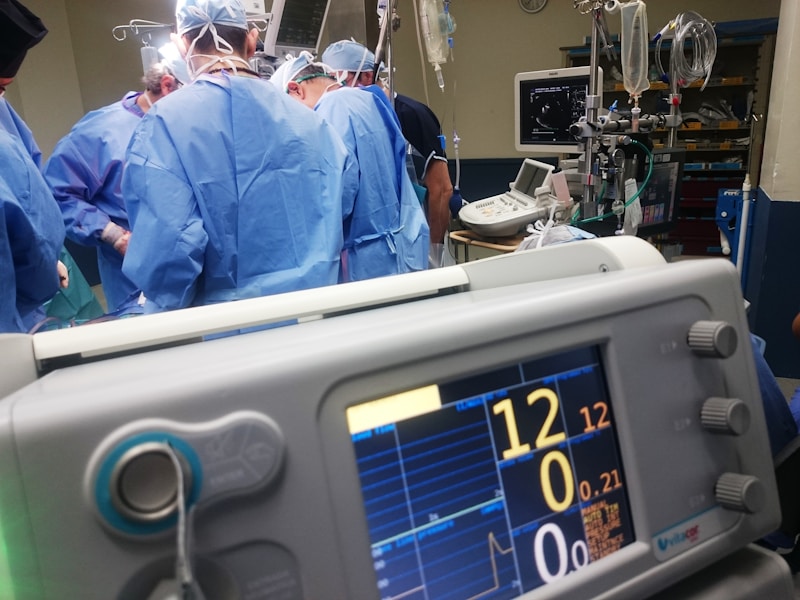Podcast
Questions and Answers
What demographic factors contribute to a higher risk of substance abuse among anaesthesia practitioners?
What demographic factors contribute to a higher risk of substance abuse among anaesthesia practitioners?
What personality characteristics are typically measured to assess the risk of addiction in healthcare professionals?
What personality characteristics are typically measured to assess the risk of addiction in healthcare professionals?
According to research, which group has a higher tendency towards addiction?
According to research, which group has a higher tendency towards addiction?
What behavior does the research suggest is associated with substance abuse among certified anaesthesia practitioners?
What behavior does the research suggest is associated with substance abuse among certified anaesthesia practitioners?
Signup and view all the answers
What statistic indicates the relationship between academic performance and substance abuse in medical professionals?
What statistic indicates the relationship between academic performance and substance abuse in medical professionals?
Signup and view all the answers
Study Notes
Prevalence of Depression and Substance Abuse in Healthcare Professionals
- Depression is prevalent among healthcare professionals, often unaddressed due to stigma.
- Anesthesia practitioners have a 2-3 times higher risk of depression and suicide compared to the general population and other healthcare workers.
Personality Traits and Addiction Correlation
- McDonough's study (1990) utilized the NEO Personality Inventory and MacAndrew Scale to analyze addiction tendencies among SRNAs (81 participants) and graduate nursing students (69 participants).
- Advanced degree holders in high-stress environments, such as operating rooms, are typical substance abusers.
- Anaesthesia students show a 22% addiction tendency, while Master's of Nursing students have only a 5.9% tendency.
Characteristics of Anesthesia Practitioners
- High achievers often experience obsessive-compulsive traits, increasing addiction susceptibility.
- Luck and Hedrick (2004) reported 66.7% of substance abusers performed at the top of their classes.
- Sensation-seeking behavior is linked to recreational substance use among students and performance enhancement among certified practitioners.
Family History and Addiction Risk Factors
- Genetic components contribute to addiction; family history of substance abuse increases risk.
- Men are at a greater risk for substance abuse, as confirmed by Bell et al. (1999) indicating 62.9% of abusing CRNAs are male.
- Previous alcohol addiction correlates with later anesthetic substance abuse.
Recommendations for Improving Practices
- Recommendations include reducing 16-hour shifts, controlling propofol as a substance, and updating educational resources.
- Effective substance abuse prevention strategies must be standardized in educational and workplace settings.
Research Gaps and Future Directions
- There is a gap in literature focusing on substance abuse in SRNAs compared to registered practitioners.
- Emphasis on teaching healthy stress management techniques to students before graduation is crucial.
- Conversations with recovering practitioners can provide insights into addiction patterns and potential preventative measures.
Key Suggestions for Policy and Practice
- Develop standardized wellness improvement measures and peer discussion programs for practitioners.
- Implement non-punitive avenues for providers to seek help and establish re-entry supervision for those recovering from addiction.
- SRNAs must learn to recognize and address substance abuse issues in their work environments.
- Creation of standardized educational tools to educate students on substance abuse implications is necessary.
Studying That Suits You
Use AI to generate personalized quizzes and flashcards to suit your learning preferences.
Related Documents
Description
This quiz explores the prevalence of depression among healthcare professionals, specifically focusing on anaesthesia practitioners. It references the findings of Rose and Brown (2010) and examines the psychological factors contributing to their high stress levels and susceptibility to mental health issues. Test your knowledge on the NEO Personality Inventory and its implications in this context.




